 Defective imports from China, from pet food that kills pets, to toys containing lead, have grabbed headlines in United States for years. Regulations in China are lax, and the communist regime regularly attempts to cover up domestic food scandals.
Defective imports from China, from pet food that kills pets, to toys containing lead, have grabbed headlines in United States for years. Regulations in China are lax, and the communist regime regularly attempts to cover up domestic food scandals.
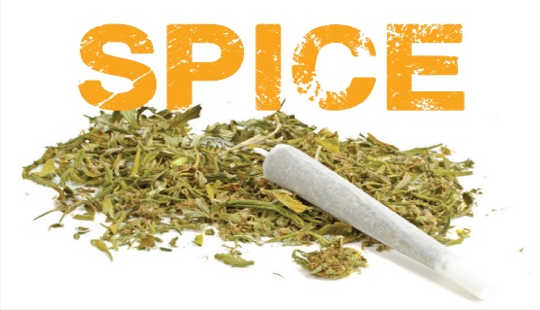 Synthetic cannabis, of which Spice is an example, is linked to serious health issues ranging from difficulties breathing to psychotic episodes.
Synthetic cannabis, of which Spice is an example, is linked to serious health issues ranging from difficulties breathing to psychotic episodes.
 It’s been one of the most astonishing changes in human anatomy. In just one generation, people all over the world have got a lot bigger.
It’s been one of the most astonishing changes in human anatomy. In just one generation, people all over the world have got a lot bigger.
 An increasing number of food-poisoning outbreaks in Britain are being caused by undercooked chicken livers.
An increasing number of food-poisoning outbreaks in Britain are being caused by undercooked chicken livers.
 Lysergic acid diethylamide (LSD) is a synthetic chemical made from a substance found in a fungus that grows on rye and other grains, called ergot.
Lysergic acid diethylamide (LSD) is a synthetic chemical made from a substance found in a fungus that grows on rye and other grains, called ergot.
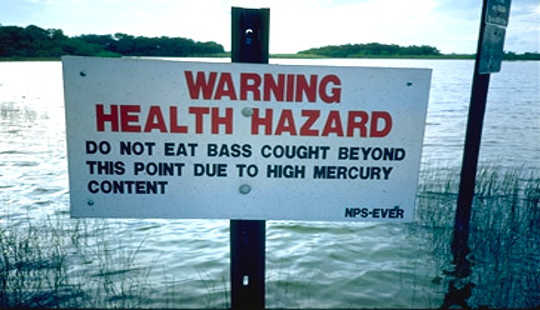 Mercury contamination is widespread across western North America in the air, soil, lake sediments, plants, fish, and wildlife, according to new research.
Mercury contamination is widespread across western North America in the air, soil, lake sediments, plants, fish, and wildlife, according to new research.
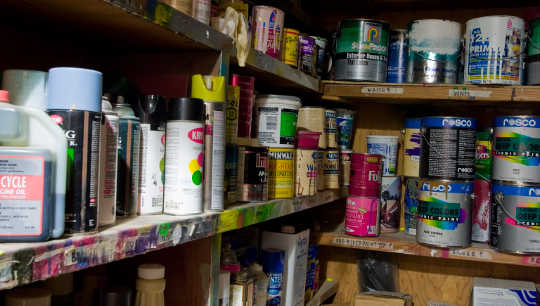 Researchers at George Washington University compiled data from household dust samples collected throughout the United States and found 45 potentially toxic chemicals used in many common products, such as vinyl flooring, personal care and cleaning products, building materials, and furniture.
Researchers at George Washington University compiled data from household dust samples collected throughout the United States and found 45 potentially toxic chemicals used in many common products, such as vinyl flooring, personal care and cleaning products, building materials, and furniture.
 Nearly one-third of Australians aged 55 or over (or around 1.5 million people) have an untreated cataract. In 2013-14, there were 229,693 hospital admissions for cataract surgeries, making cataracts one of the most prevalent conditions among Australians.
Nearly one-third of Australians aged 55 or over (or around 1.5 million people) have an untreated cataract. In 2013-14, there were 229,693 hospital admissions for cataract surgeries, making cataracts one of the most prevalent conditions among Australians.
 A friend reckons he has it good. His partner cooks a bacon-hash-brown-fry-up for breakfast every day. “Are you sure?” I said. “Cause that’s exactly what I would feed my partner if I wanted to bump him off!”
A friend reckons he has it good. His partner cooks a bacon-hash-brown-fry-up for breakfast every day. “Are you sure?” I said. “Cause that’s exactly what I would feed my partner if I wanted to bump him off!”
 Anyone who has stepped off an airplane in one of the major cities of the developing world has encountered profound and noxious air pollution. In New Delhi, Jakarta,
Anyone who has stepped off an airplane in one of the major cities of the developing world has encountered profound and noxious air pollution. In New Delhi, Jakarta,
“An apple a day keeps the doctor away” says the proverb—but maybe not in China. Due to a lack of regulation and enforcement, farmers in China regularly add dangerous amounts of fertilizers, preservatives, pesticides, and other chemicals
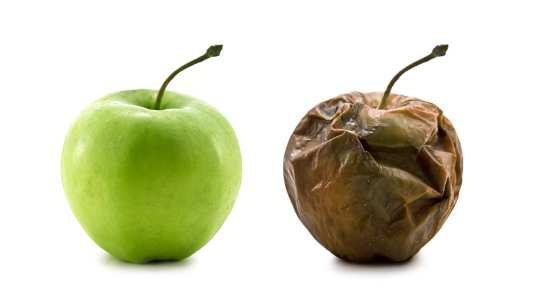 A hotel in Reykjavík has on display a McDonald’s burger and fries, seemingly undecomposed after 2,512 days – and counting. It was bought on October 30, 2009, the day that the last McDonald’s in Iceland closed.
A hotel in Reykjavík has on display a McDonald’s burger and fries, seemingly undecomposed after 2,512 days – and counting. It was bought on October 30, 2009, the day that the last McDonald’s in Iceland closed.
 A new study increases and strengthens the links that have led scientists to propose the “transposon theory of aging.”
A new study increases and strengthens the links that have led scientists to propose the “transposon theory of aging.”
 White Americans live on average3.6 years longer than black Americans. If you look only at men, the difference becomes 4.4 years.
White Americans live on average3.6 years longer than black Americans. If you look only at men, the difference becomes 4.4 years.
 Applying a human moral construct to nature by dividing foods and lifestyles into good and bad is misleading. In reality, nothing in nature is either good or bad. For instance, our bodies need cholesterol for a variety of important purposes, while exercise and sports can be dangerous and even capable of ending our lives prematurely.
Applying a human moral construct to nature by dividing foods and lifestyles into good and bad is misleading. In reality, nothing in nature is either good or bad. For instance, our bodies need cholesterol for a variety of important purposes, while exercise and sports can be dangerous and even capable of ending our lives prematurely.
 Thanks to social media, it’s hard to escape from hearing about people’s fitness levels. Sites like Facebook and Instagram provide a constant stream of information about user’s gym visits, nutrition plans and race results.
Thanks to social media, it’s hard to escape from hearing about people’s fitness levels. Sites like Facebook and Instagram provide a constant stream of information about user’s gym visits, nutrition plans and race results.
 Relying on clinical symptoms of memory loss to diagnose Alzheimer’s disease may miss other forms of dementia caused by Alzheimer’s that don’t initially affect memory, a new study suggests.
Relying on clinical symptoms of memory loss to diagnose Alzheimer’s disease may miss other forms of dementia caused by Alzheimer’s that don’t initially affect memory, a new study suggests.
 An FDA ruling on Sept. 2 bans the use of triclosan, triclocarban and 17 other antiseptics from household soaps because they have not been shown to be safe or even have any benefit.
An FDA ruling on Sept. 2 bans the use of triclosan, triclocarban and 17 other antiseptics from household soaps because they have not been shown to be safe or even have any benefit.
 In a squalid fish farm in Yangjiang, Guangdong, farmers fed tilapia fish with the feces of pigs and geese to lower the cost of production.
In a squalid fish farm in Yangjiang, Guangdong, farmers fed tilapia fish with the feces of pigs and geese to lower the cost of production.
 The key to sticking with an exercise program is actually enjoying it, new research shows.
The key to sticking with an exercise program is actually enjoying it, new research shows.
 In one of television’s more bizarre recent offerings, the History Channel show “Appalachian Outlaws” follows a band of West Virginians as they hunt rugged forests for American ginseng, a medicinal root worth hundreds of dollars per pound.
In one of television’s more bizarre recent offerings, the History Channel show “Appalachian Outlaws” follows a band of West Virginians as they hunt rugged forests for American ginseng, a medicinal root worth hundreds of dollars per pound.
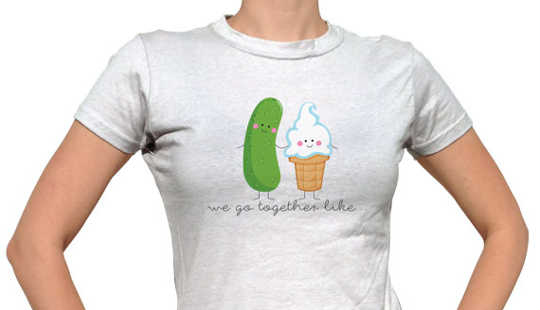 My forgetful friend – the subject of my original article – gave birth to a baby girl on Thanksgiving Day. She’s a beauty, and I know her mum agrees that the morning sickness, crazy sense of smell and forgetfulness were worth it in the end.
My forgetful friend – the subject of my original article – gave birth to a baby girl on Thanksgiving Day. She’s a beauty, and I know her mum agrees that the morning sickness, crazy sense of smell and forgetfulness were worth it in the end.
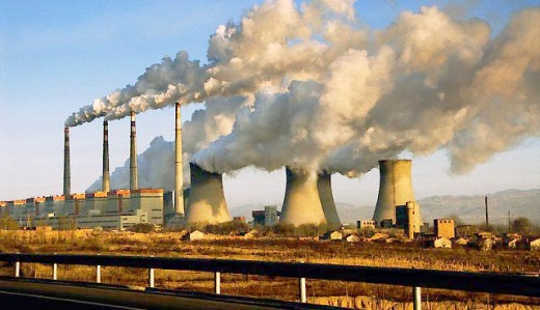 This is the worst year in decades for U.S. coal. During the first six months of 2016, U.S. coal production was down a staggering 28 percent compared to 2015, and down 33 percent compared to 2014.
This is the worst year in decades for U.S. coal. During the first six months of 2016, U.S. coal production was down a staggering 28 percent compared to 2015, and down 33 percent compared to 2014.
















